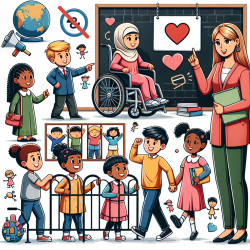The emotional, social, and financial pressures of caring for a child with disabilities are significant. When bullying enters the equation, it can add an overwhelming layer of stress that affects the entire family. This blog explores key insights from a survey conducted by the Anti-Bullying Alliance and Contact a Family, focusing on the experiences of parents whose children with disabilities faced bullying at school.
Understanding Bullying Behaviors
The Anti-Bullying Alliance defines bullying as repetitive nasty or unkind actions that are difficult to stop. Bullying can manifest in various forms: verbal (36%), emotional (30%), physical (28%), and less commonly, sexual or racial. These behaviors often extend beyond school boundaries, affecting children even in their neighborhoods or online.
The Impact on Families
The survey revealed that 96% of parents reported their children being bullied at school, with many believing the bullying stemmed from their child's disabilities or special educational needs. The effects were profound and long-lasting, damaging children's self-esteem and sometimes leading to self-harm or retaliatory behavior.
A Parent's Perspective
"It is hard to express just how awful the whole situation was and the problems that it still brings us – five years on," shared one parent. This sentiment echoes throughout many families' experiences, highlighting the need for effective intervention.
Schools' Responses to Bullying
Once bullying is reported, schools react in various ways. While 22% of families found the responses effective, citing actions like educating students about disabilities or implementing support mechanisms, 68% found them lacking. Common complaints included disbelief from school staff and inadequate responses that left families feeling unsupported.
Positive Actions Schools Can Take
- Implement education sessions to raise awareness about disabilities.
- Create safe spaces within schools for vulnerable students.
- Establish clear channels for reporting bullying incidents.
- Engage parents and professionals in developing strategies to combat bullying.
Empowering Parents: What You Can Do
Parents play a crucial role in addressing bullying. Here are some actions you can request from schools:
- Assign a designated person for your child to report bullying incidents.
- Create safe zones during breaks where your child can feel secure.
- Ensure open communication between teaching staff and lunchtime supervisors.
- Encourage inclusive activities during unstructured times like recess.
Your involvement is vital in ensuring that schools not only recognize but effectively address bullying behaviors. By working together with educators and utilizing available resources, you can help create a safer environment for all children.
If you want to learn more about strategies to combat bullying of children with disabilities, please follow this link.
Together, we can work towards an inclusive society where every child feels safe and valued in their educational journey.










